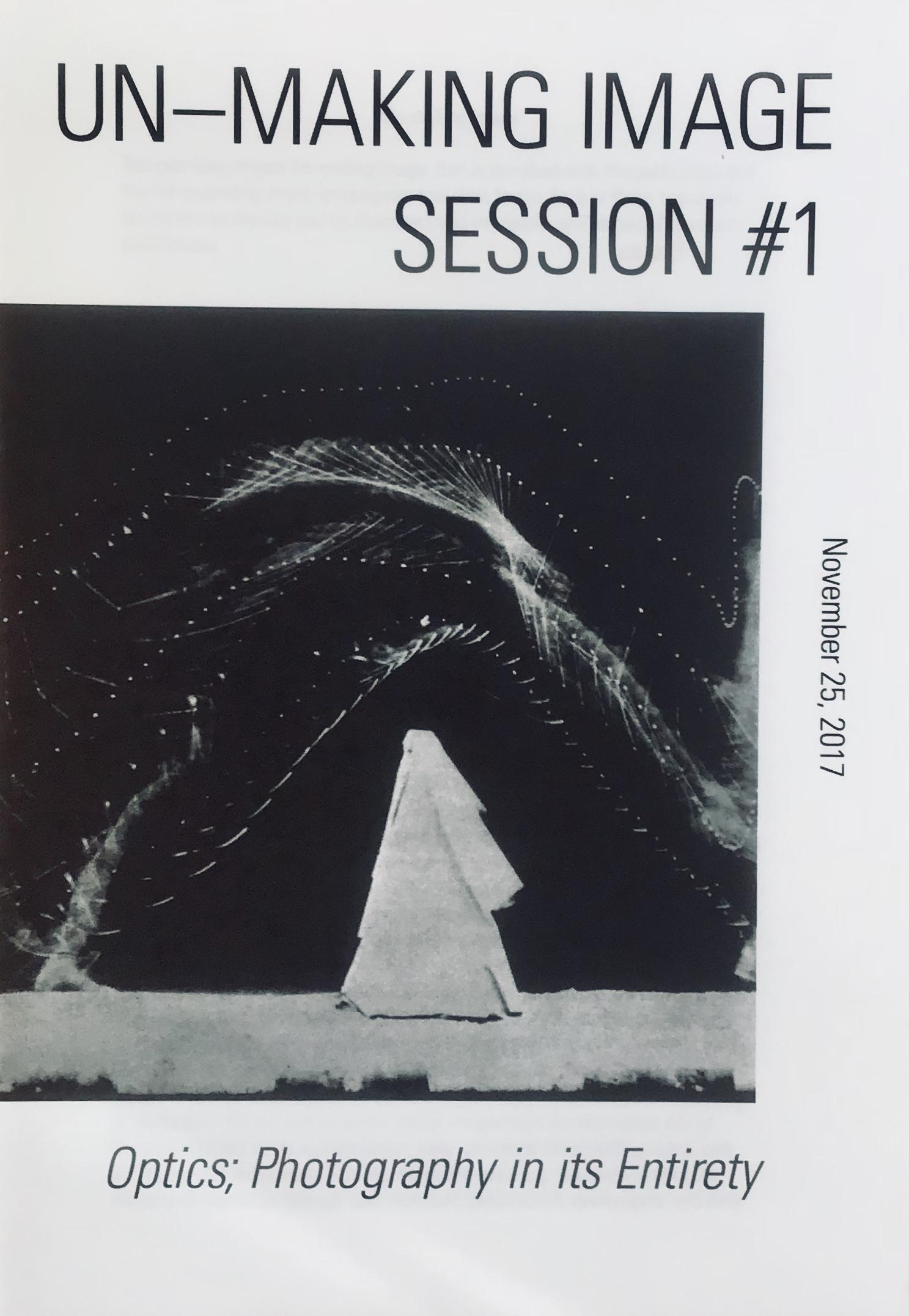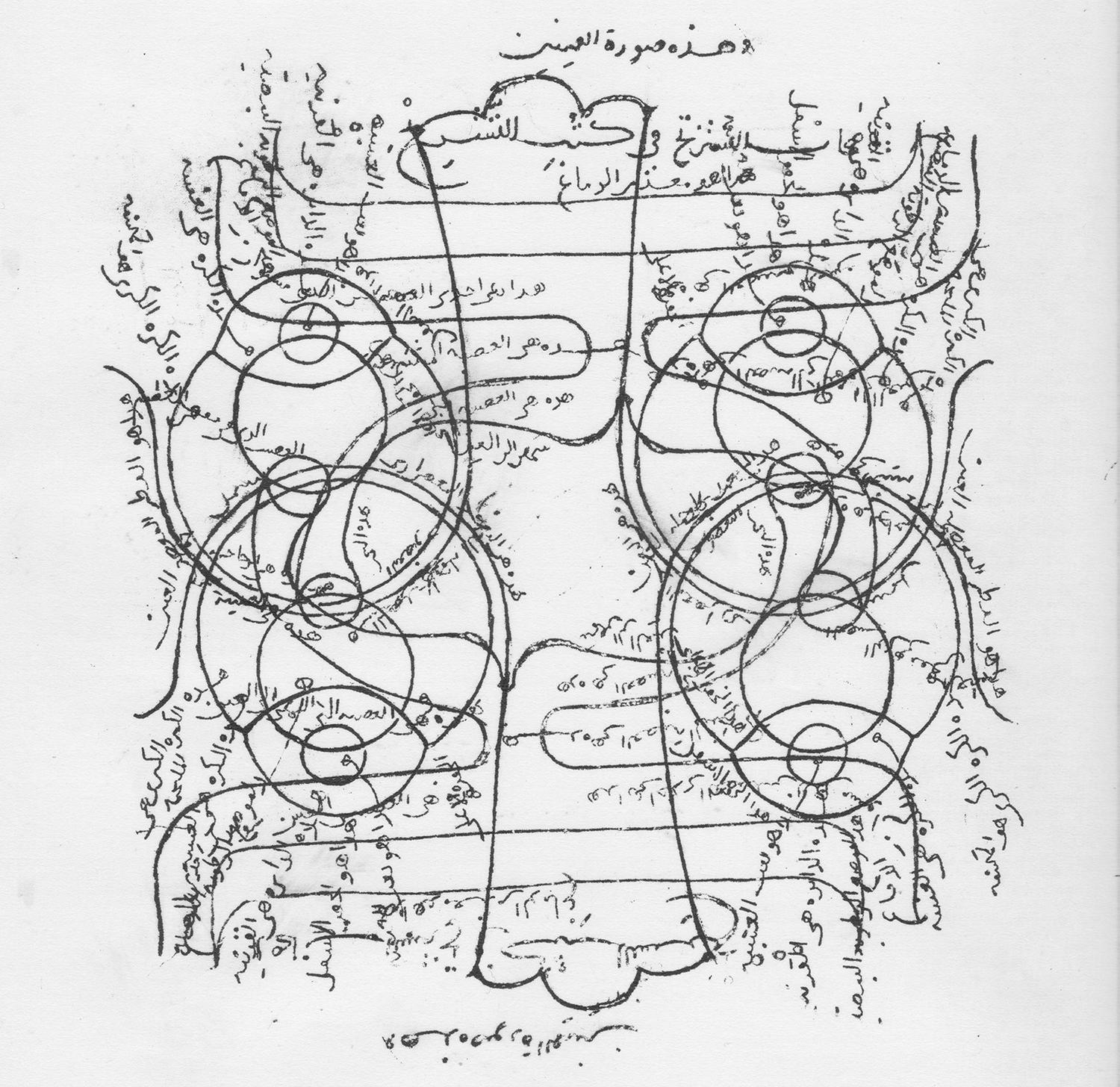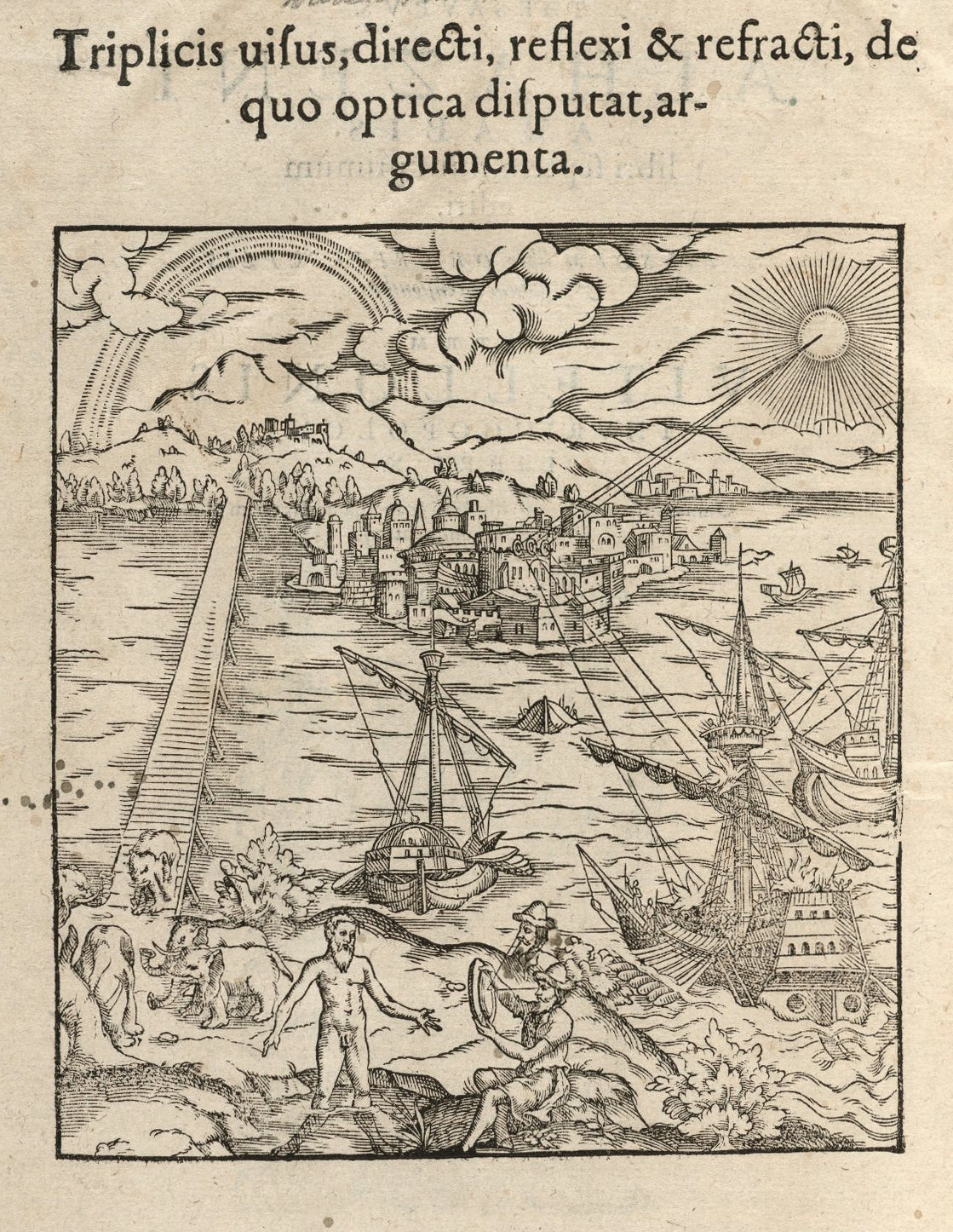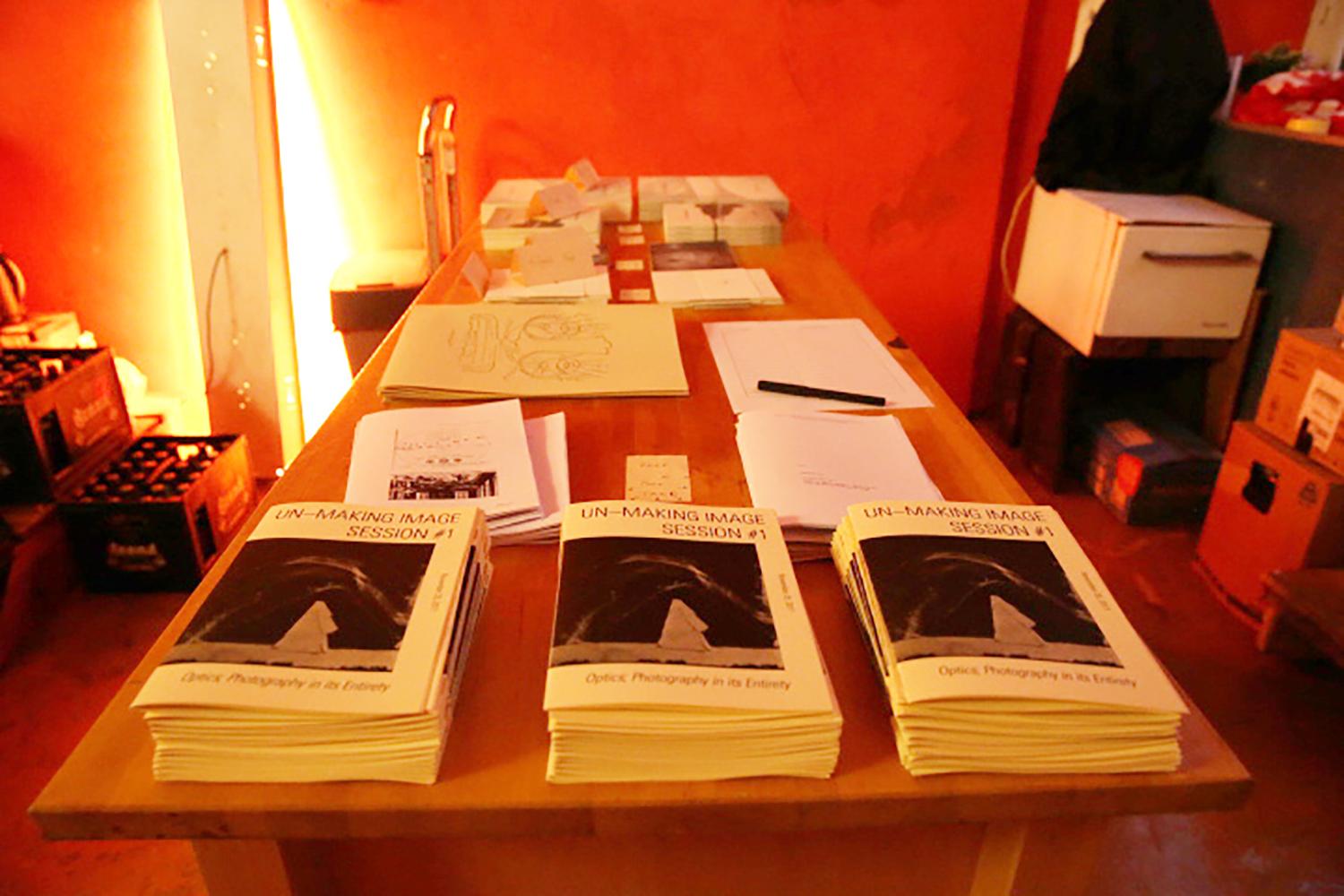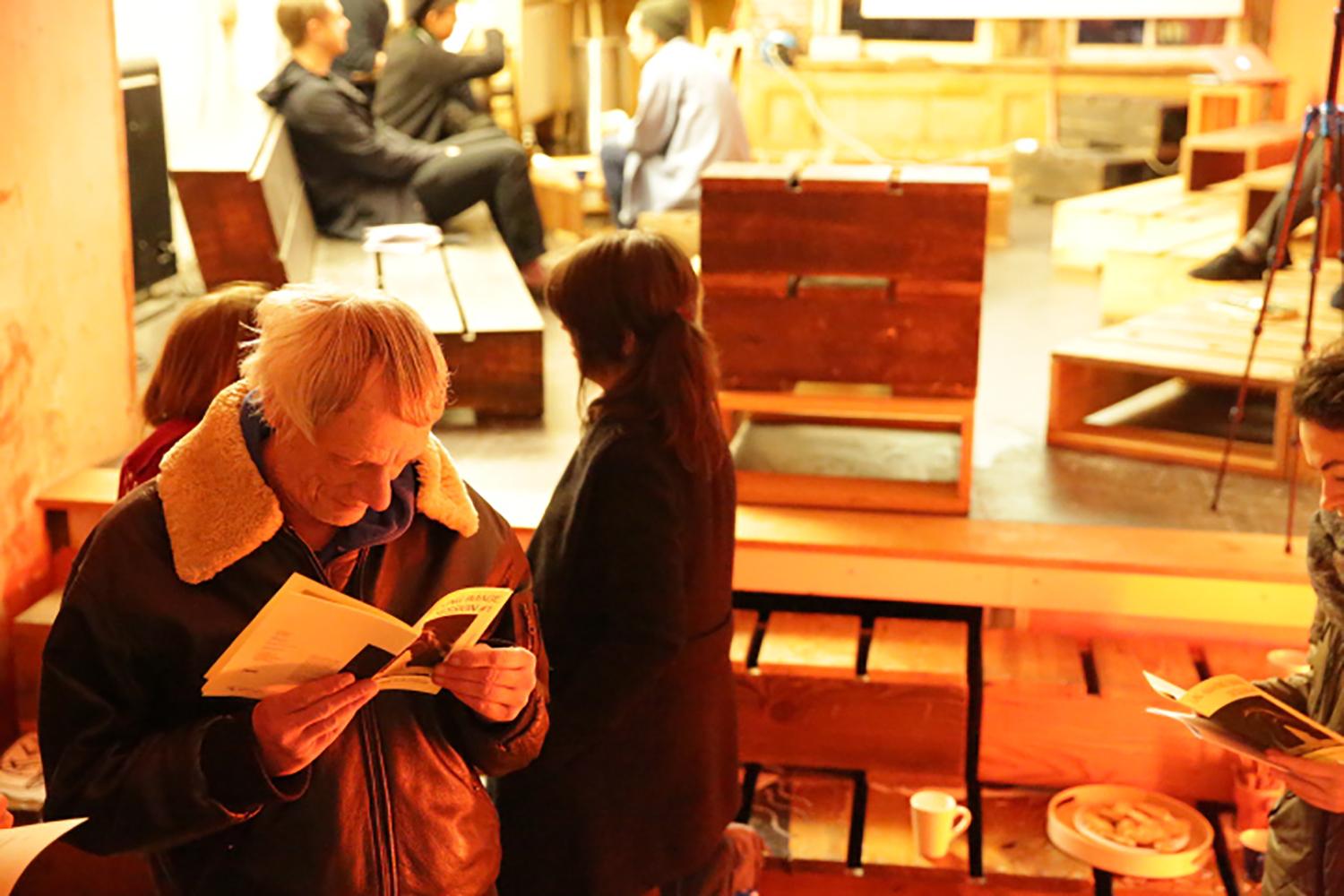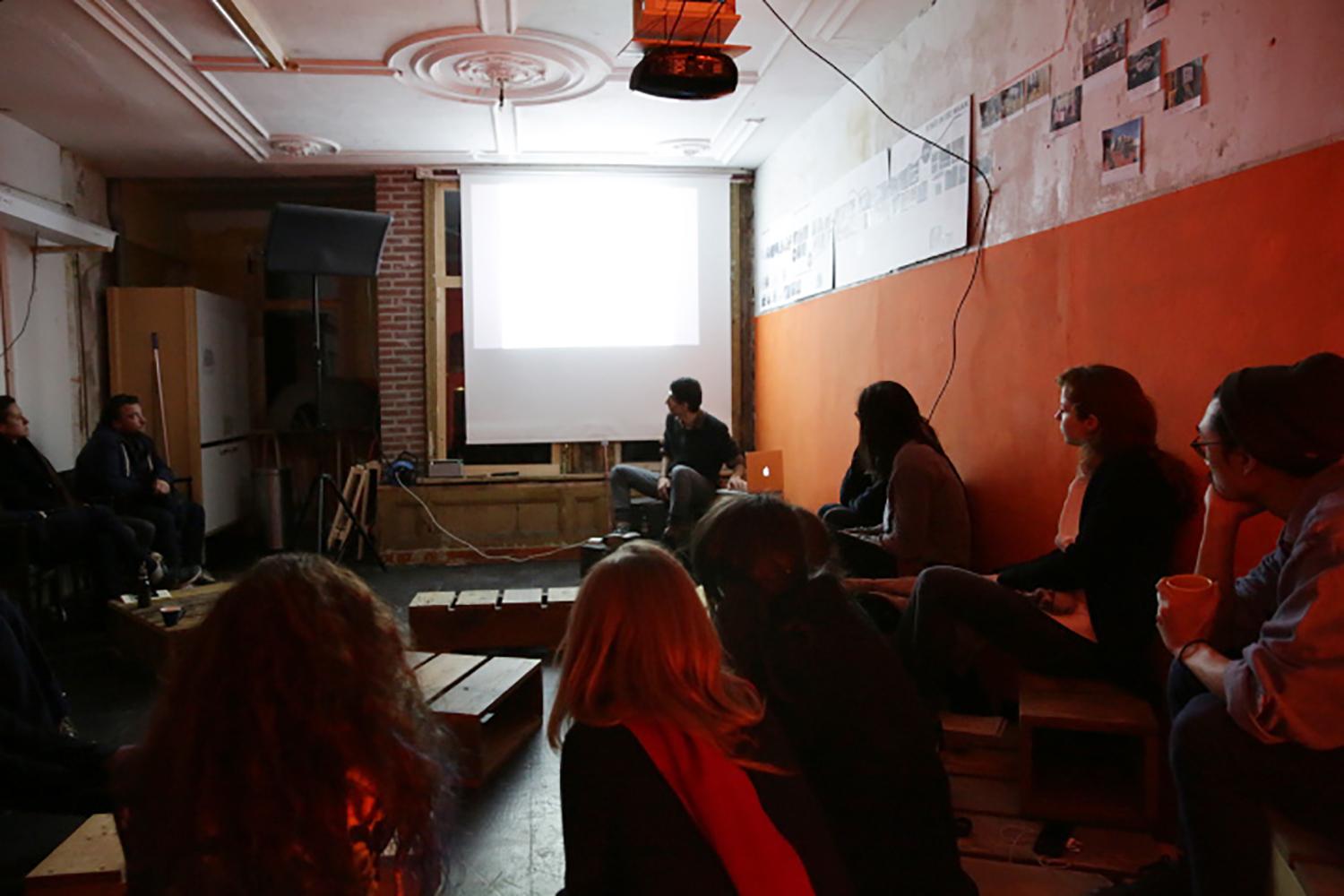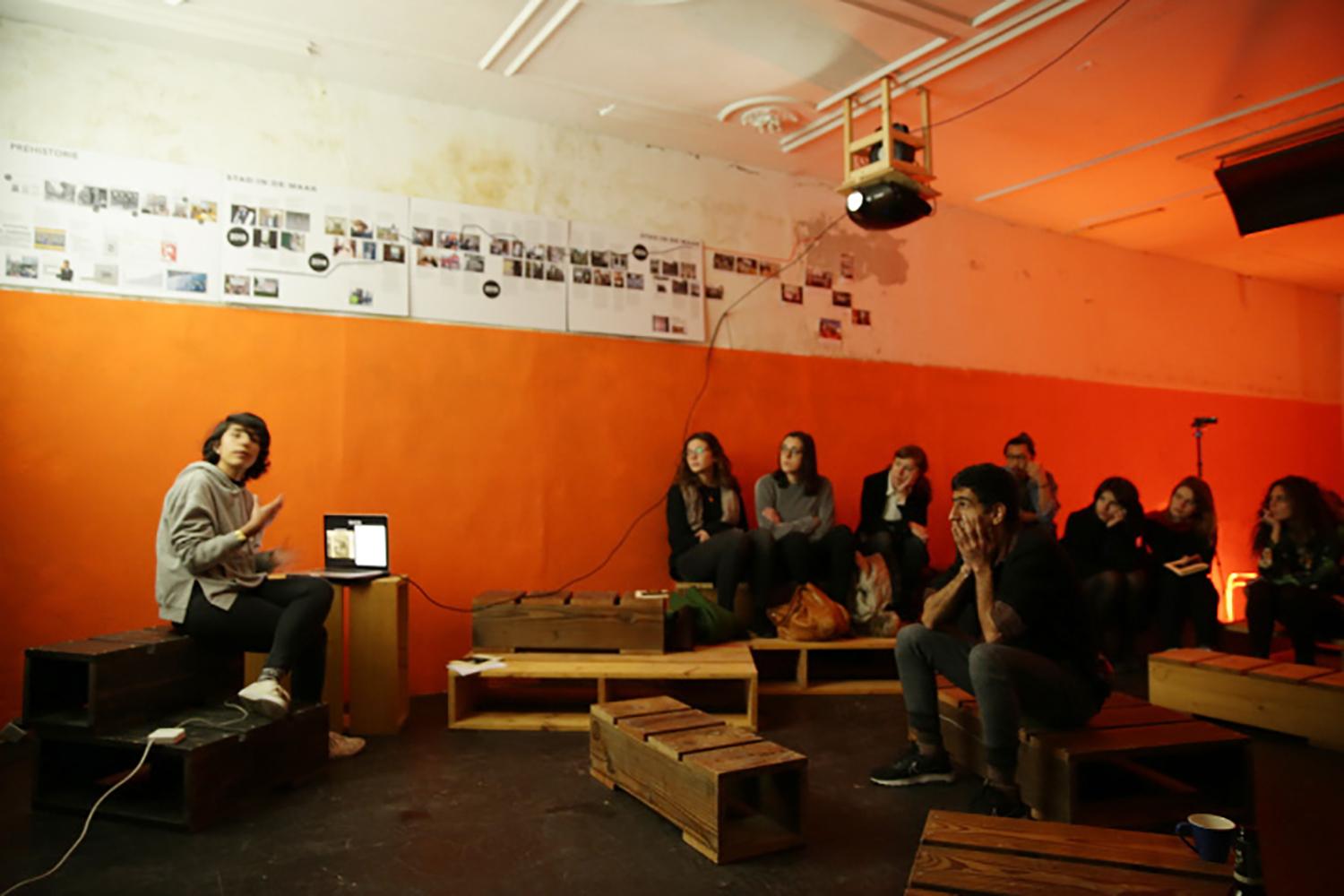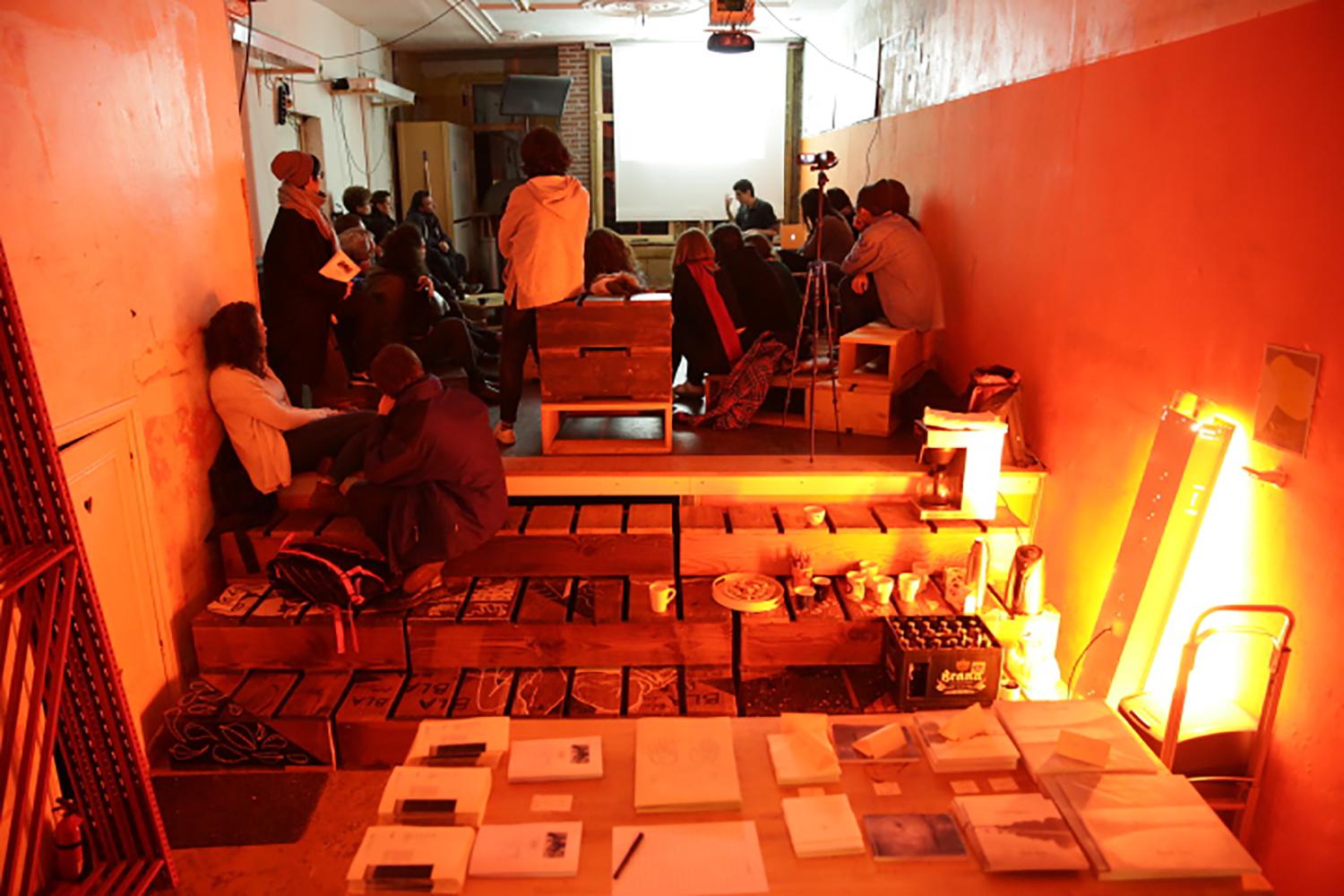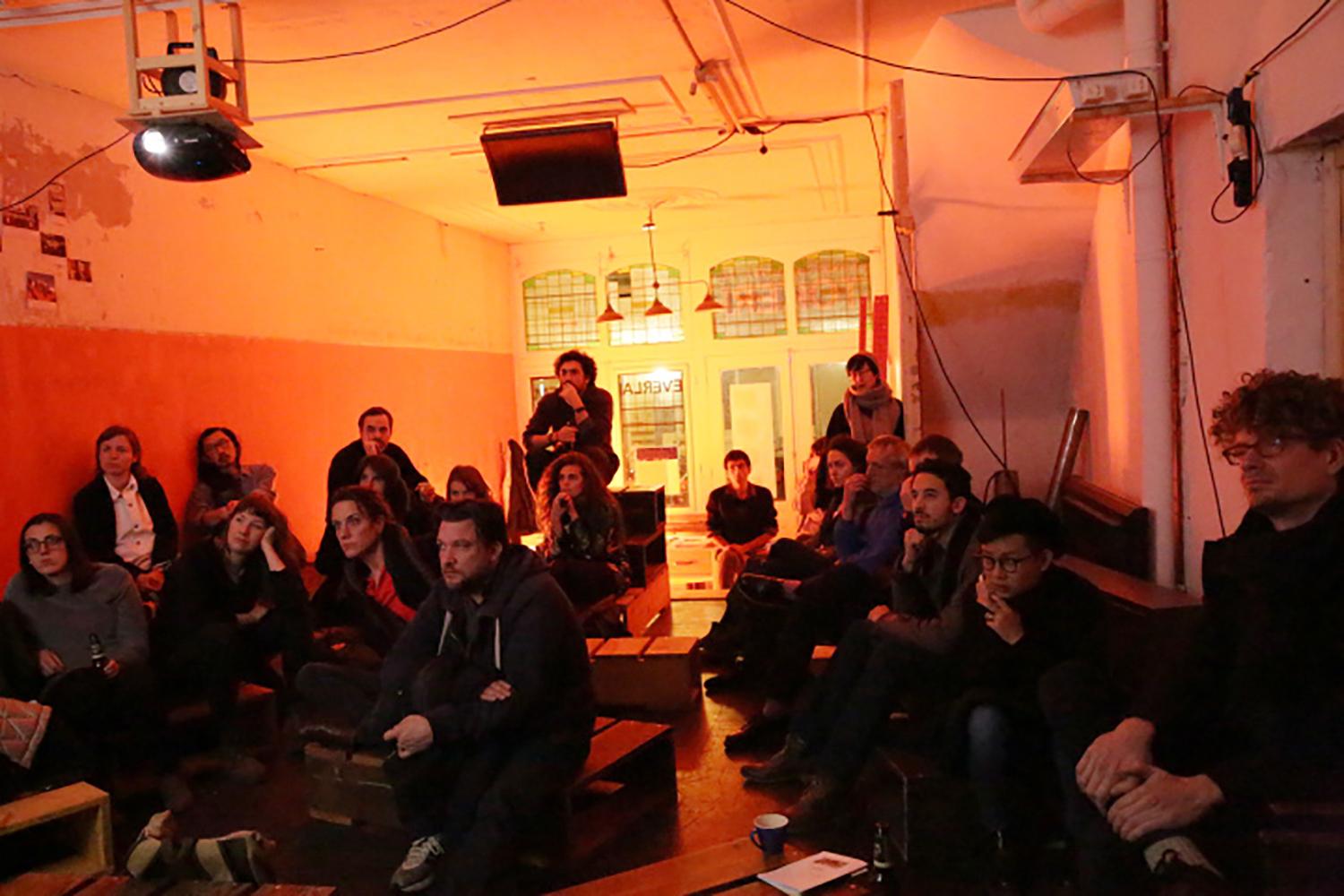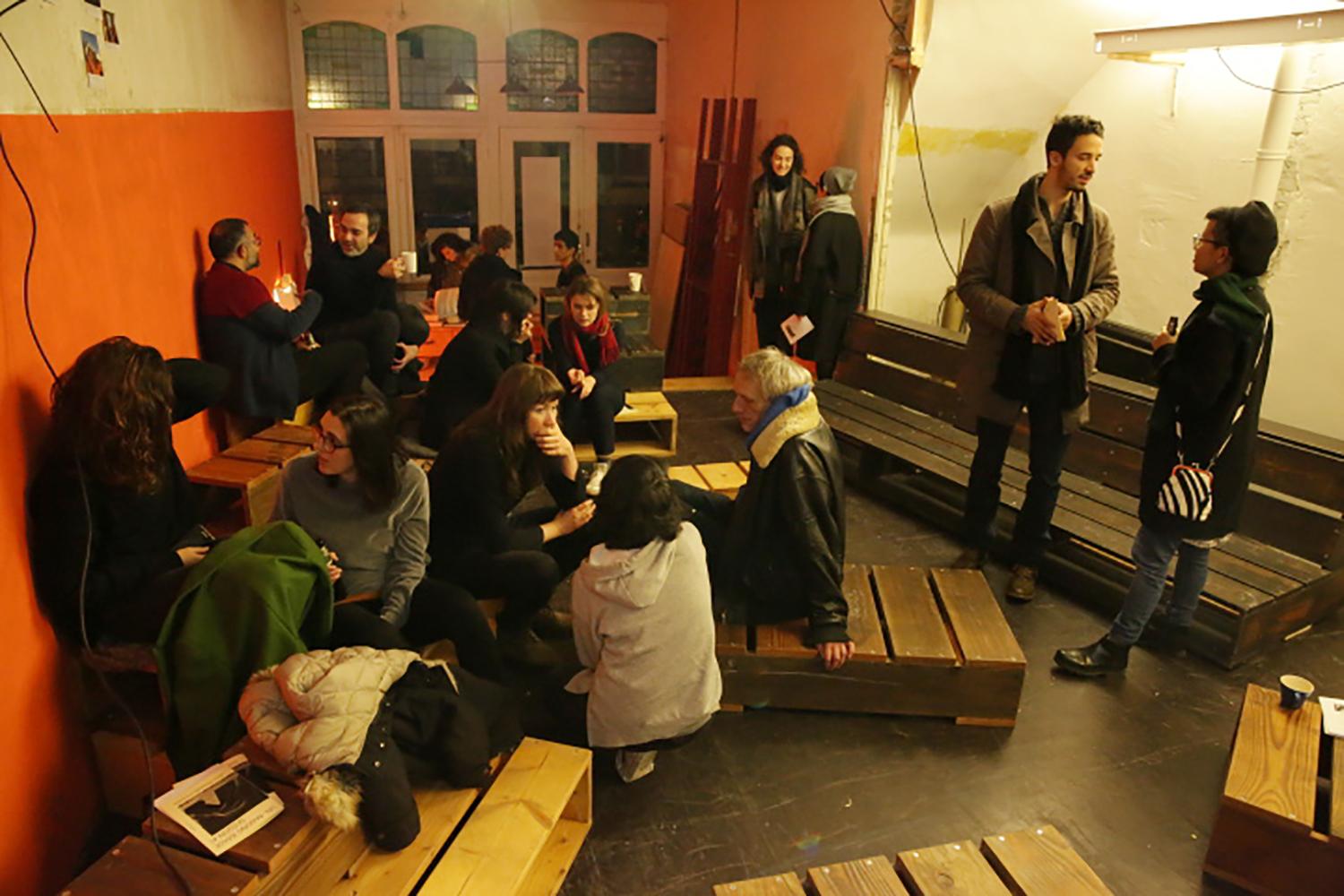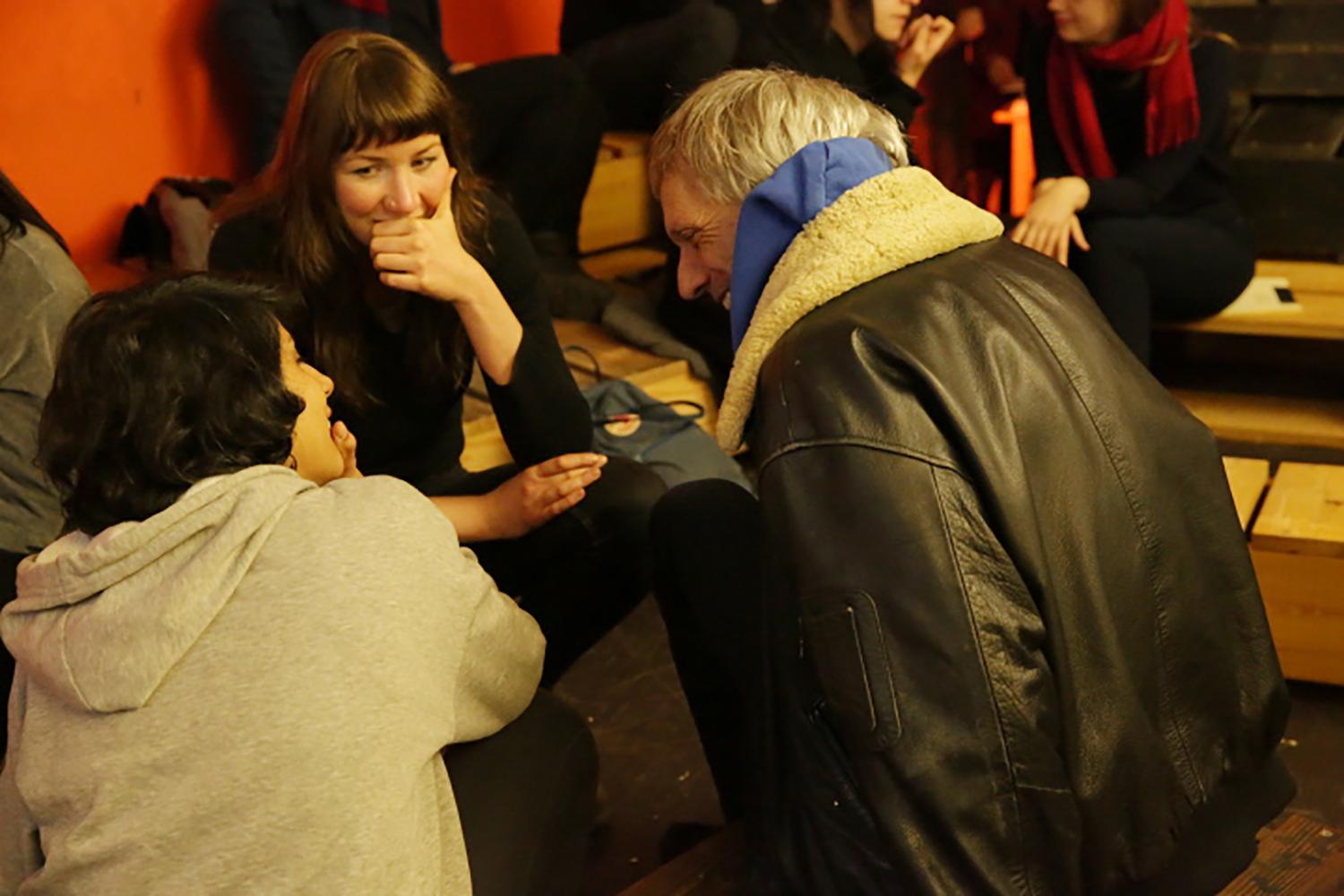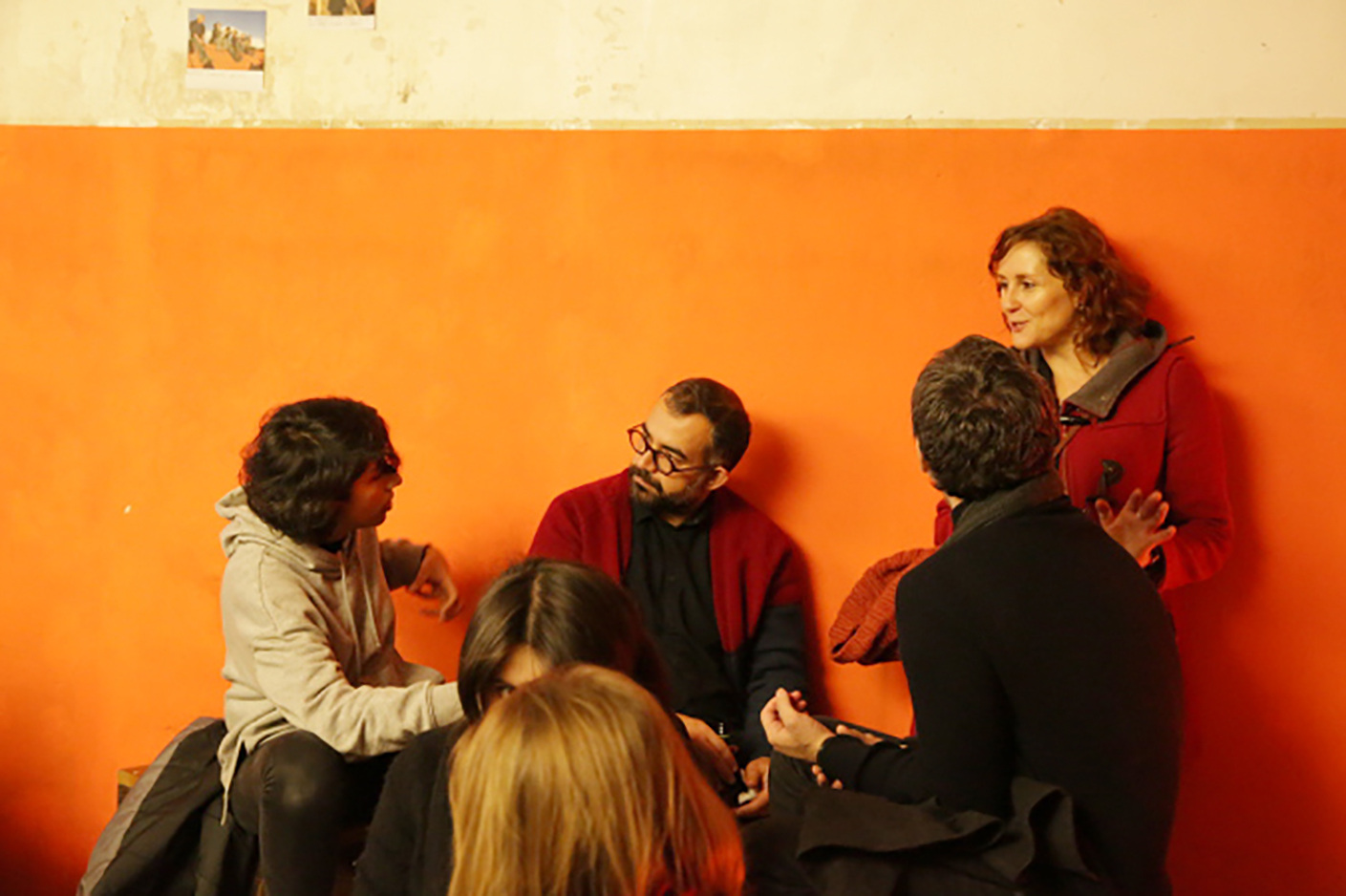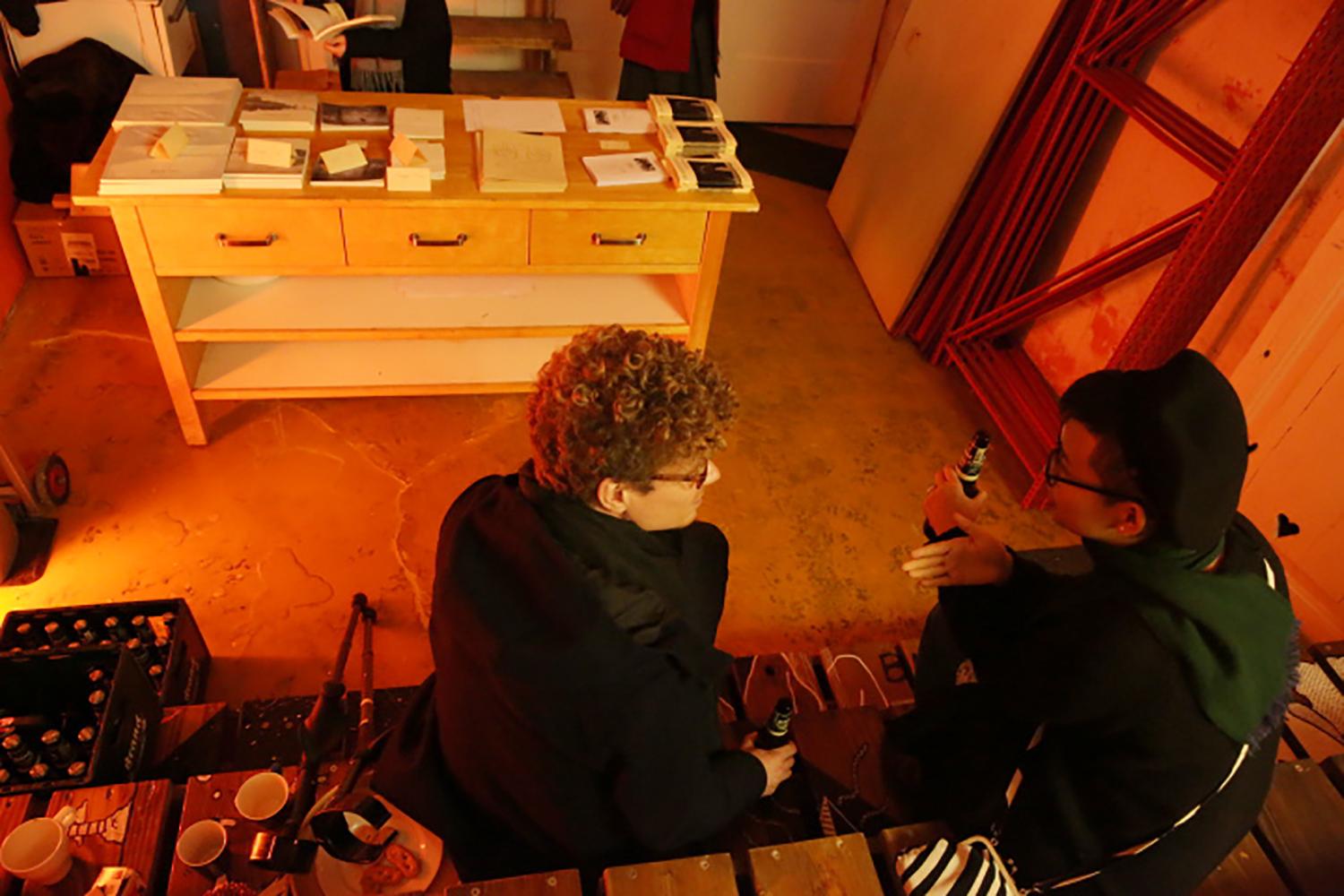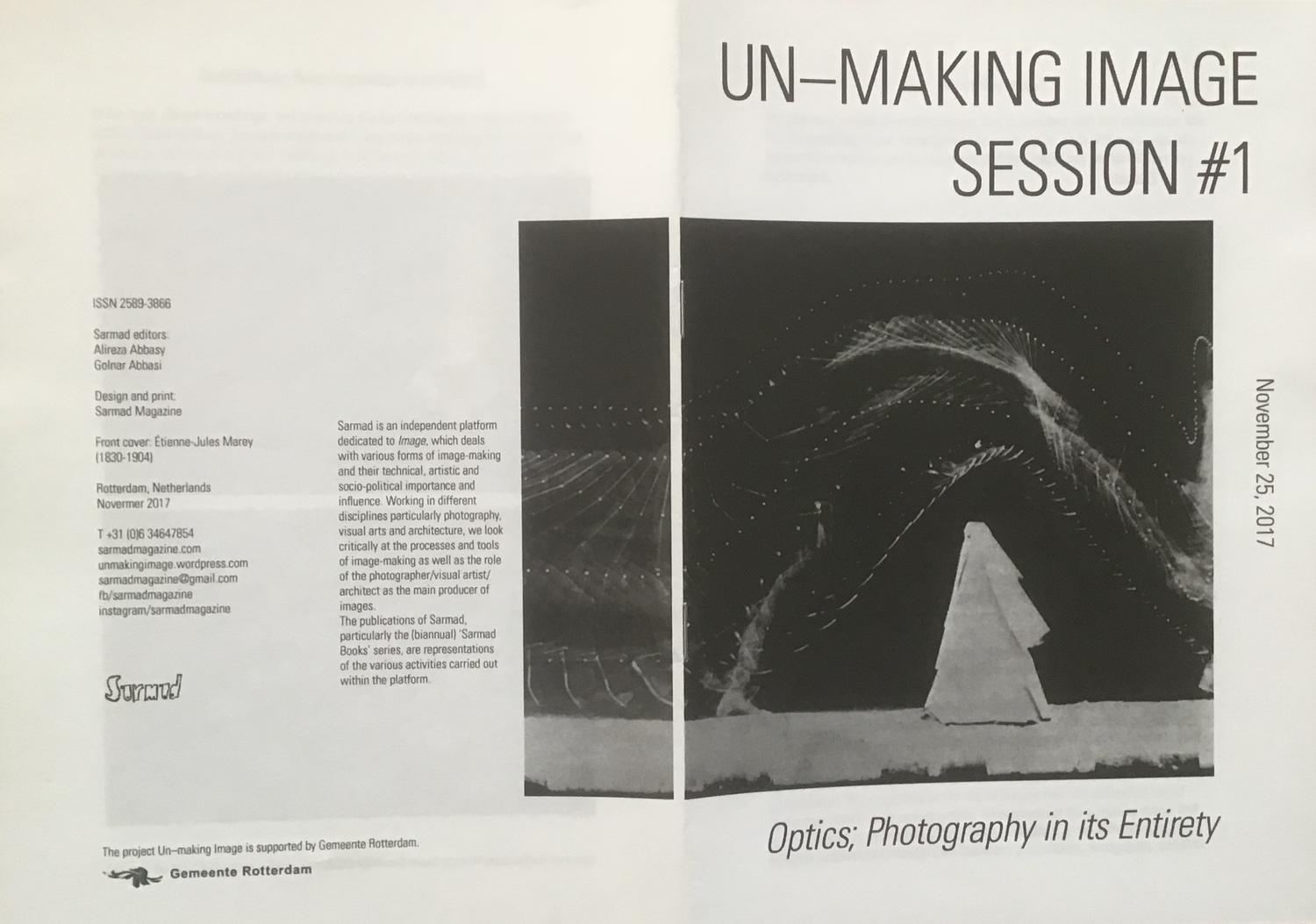Un-Making Image Session #1: Optics, Photography in Its Entirety
Date: November 2017
Location: Neverland Cinema, Stad in de Maak, Rotterdam
Photography is as old as humans’ basic knowledge of optics. Using a camera, a device for reproducing image, goes back to centuries before Christ, to the earliest notes on “camera obscura”. What we generally perceive as the “invention” of photography in the 19th century is just the invention of the “chemistry” which enabled us to fix the image reproduced by the camera on a light-sensitive surface. But long before the chemistry was invented, drawing and painting were used to record the projected image; there is considerable evidence regarding the use of optical devices in masterpieces by the old masters of painting from the 15th century onwards.
The aim of this theme is to rethink the practice of image making, particularly in photography and architecture, through rediscovering the roots of processes and devices used historically to make images. This project will re-read the history of image making devices, and their different scientific, artistic, sociopolitical applications; and then, to reflect on this knowledge and on its current applications particularly in architecture, visual arts, and photography.
Program:
1. Introduction to Sarmad’s one-year project, "Unmaking Image" (15 min)
We will introduce the history of Sarmad, discuss this year's project, and the two themes: "Optics, Photography in its Entirety" and "Image and Power"
2. Opening up of the theme "Optics; Photography in its Entirety" (15 min)
Will discuss the history vs. prehistory of photography, Camera Obscura, and its applications (including paintings of van Eyck, Vermeer, Caravaggio, etc)
3. Film screening (70 min)
Documentary, “David Hockney: Secret Knowledge” (2002)
4. Brainstorming/Discussion (30 min)
We will all collectively discuss ideas and your possible contributions to the project. If you have work to share or suggestions for a group reading/lecture/skype interview/screening, etc, feel welcomed to join.
